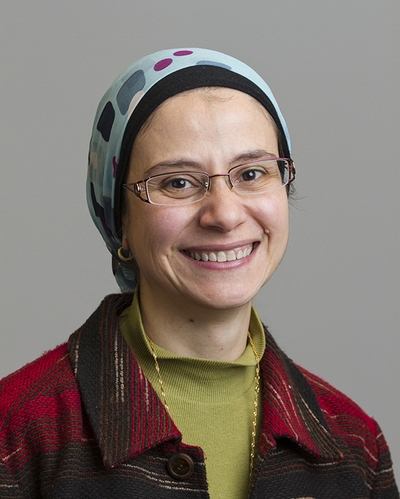
Research Topics
Dr. Shahinaz Gadalla's research interests focus on identifying and characterizing individuals at high risk of developing cancer and discovering predictive and prognostic biomarkers that may guide therapeutic decisions for those patients.
Cancer Predisposition in Patients with Myotonic Dystrophy
Myotonic Dystrophy (DM) is an inherited disorder that represents the most common type of adult onset muscular dystrophy group of diseases. In 2011, Dr. Gadalla and colleagues were the first to report epidemiological evidence of excess cancer risk in DM patients. She analyzed data from population registries in Sweden and Denmark and observed a high risk of endometrial, ovarian, brain and colon cancer among DM patients. This work identified DM as a new cancer susceptibility syndrome. Her ongoing DM research aims at understanding the clinical correlates, risk factors, and molecular mechanisms behind cancer susceptibility in DM.
Molecular Predictors of Outcomes after Hematopoietic Cell Transplantation
Allogeneic hematopoietic cell transplant (HCT) is the treatment of choice for many severe inherited or acquired diseases of the hematopoietic system including both malignant and non-malignant disorders. Dr. Gadalla’s work focuses on severe aplastic anemia and myeloid neoplasms with a goal of identifying biomarkers that can guide donor selection or patient risk stratification. Her investigations include markers of cellular aging, germline genetic variants, and somatic copy-number alterations.
Biography
Dr. Gadalla earned her medical degree from Ain Shams University School of Medicine in Cairo, Egypt, and an M.S. and a Ph.D. in epidemiology from the University of Maryland, Baltimore. She joined the Clinical Genetics Branch within the NCI Division of Cancer Epidemiology and Genetics as a Cancer Prevention Fellow in 2008, was promoted to a Staff Scientist in 2011, and was appointed as a tenure-track Investigator in 2014 through the NIH Earl Stadtman Investigator program. She was awarded NIH scientific tenure and appointed senior investigator in 2022.
Selected Publications
- Gadalla SM, Lund M, Pfeiffer RM, Gørtz S, Mueller CM, Moxley RT 3rd, Kristinsson SY, Björkholm M, Shebl FM, Hilbert JE, Landgren O, Wohlfahrt J, Melbye M, Greene MH. Cancer risk among patients with myotonic muscular dystrophy. JAMA. 2011;306(22):2480-6.
- Alsaggaf R, St George DMM, Zhan M, Pfeiffer RM, Wang Y, Wagner KR, Greene MH, Amr S, Gadalla SM. Cancer Risk in Myotonic Dystrophy Type I: Evidence of a Role for Disease Severity. JNCI Cancer Spectr. 2018;2(4):pky052.
- Gadalla SM, Wang T, Haagenson M, Spellman SR, Lee SJ, Williams KM, Wong JY, De Vivo I, Savage SA. Association between donor leukocyte telomere length and survival after unrelated allogeneic hematopoietic cell transplantation for severe aplastic anemia. JAMA. 2015;313(6):594-602.
- Gadalla SM, Aubert G, Wang T, Haagenson M, Spellman SR, Wang L, Katki HA, Savage SA, Lee SJ. Donor telomere length and causes of death after unrelated hematopoietic cell transplantation in patients with marrow failure. Blood. 2018;131(21):2393-2398.
- Gadalla SM, Wang Y, Wang T, Onabajo OO, Banday AR, Obajemu A, Karaesman E, Sucheston-Campbell L, Hahn T, Sees JA, Spellman SR, Lee SJ, Katki HA, Prokunina-Olsson L. Association of donor IFNL4 genotype and non-relapse mortality after unrelated donor myeloablative haematopoietic stem-cell transplantation for acute leukaemia: a retrospective cohort study. Lancet Haematol. 2020;7(10):e715-e723.
Related Scientific Focus Areas
This page was last updated on Saturday, November 22, 2025


